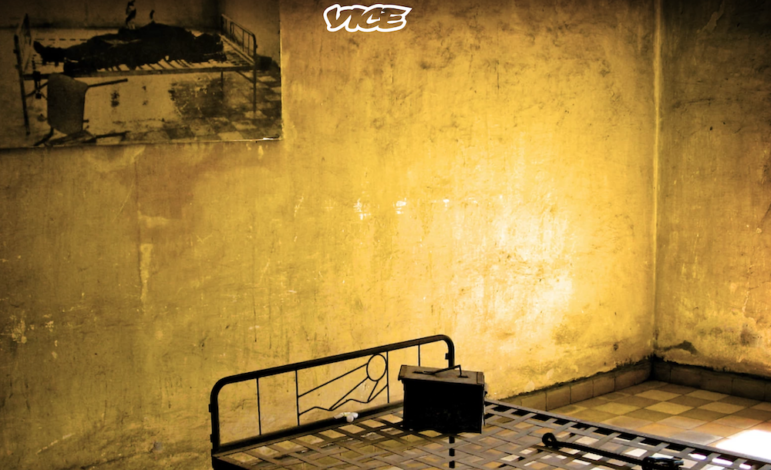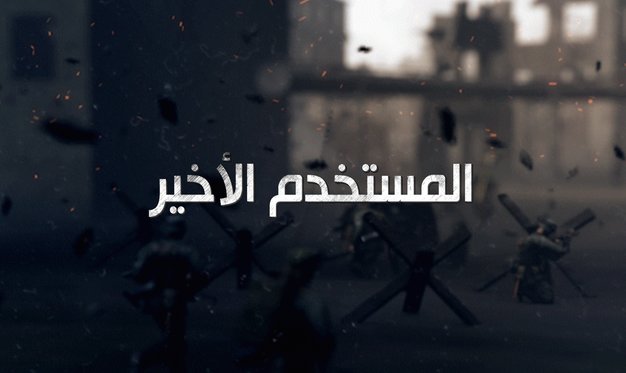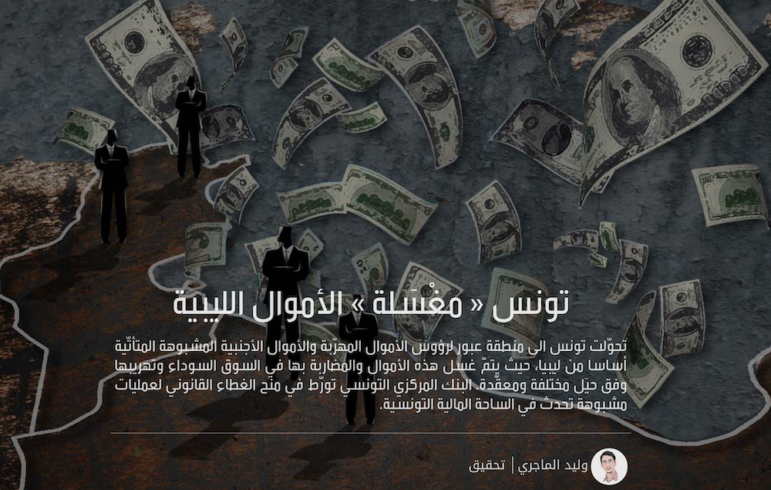In the Middle East and North Africa, resources for producing independent journalism are shrinking while laws restricting the freedom of press — including electronic crimes laws in Egypt, Jordan, Lebanon — are swelling alongside the numbers of journalists languishing in prison in countries such as Egypt and Saudi Arabia. The increasing risks involved with reporting in the region have meant that journalists are pressured into self-censorship, a life in exile or leaving the field entirely. As part of the GIJN Editor’s Pick series for 2018, GIJN’s Arabic Editor Majdoleen Hassan rounded up some of the best investigative reports published this year in the Middle East and North Africa.
The Last User — Yemen
On March 26, 2015, operation Decisive Storm was launched in Yemen. The aerial bombardment, led by the Saudis with US support, badly affected civilians and received international condemnation. But while that part of the story has been well reported, another part of the story has not received the same attention. Journalist Mohamed Aboelgheit, with the support of Arab Reporters for Investigative Journalism (ARIJ), uncovered how the US, Britain, Spain, Germany, Switzerland, Austria and Belgium were supplying arms to Yemeni fighters, violating bilateral arms agreements, as well as domestic laws and regional and international treaties. Aboelgheit also tracked the weapons imports from Balkan countries to Yemen, documenting how Saudi-led coalition forces handed them over to extremist groups there.
Royal Crimes — Saudi Arabia
Following the murder of Saudi journalist Jamal Khashoggi, BCC Arabic investigated a series of abductions and attacks on Saudi dissidents in Saudi Arabia and Europe which have happened since Crown Prince Mohammed bin Salman Al Saud has come into power.
Reporters interviewed Saad al-Faqih, a member of the Saudi opposition, who lives in London. British police put him under close surveillance after warning him of imminent threats to his life. Al-Faqih sought political asylum in Britain several years ago, and has been subject to many threats and physical attacks before and after relocating to the UK. The investigation unearthed new information around the death of a Saudi army official during his detention by Saudi authorities.
The Intelligence Agency’s Oil Company — Egypt
In his investigation for Mada Masr, Egyptian journalist Hossam Bahgat showed that Egypt’s largest importer and reseller of Israeli gas is actually owned by Egyptian intelligence. Bahgat tracked down the original contract with the Israeli gas company, which is set to start early this year. While government officials had claimed this was exclusively a private sector deal, the official documents revealed that while the East Gas Company is indeed a private company, its majority shareholder is the Egyptian General Intelligence Agency, which also takes 80 percent of the company profits. The report also found that the company’s CEO was a member of its board, and that the board’s chairman was a former agent and deputy head of the intelligence agency. Bahgat used information publicly available online, following the document trail to uncover a complicated network created by government authorities who had set up companies in the British Virgin Islands, Luxembourg, Switzerland and the Netherlands in order to conceal the company’s true ownership.

Screenshot: Vice Arabia
Deaths in Military Prisons — Syria
In this investigation, VICE Arabia uncovered the systematic killing of detainees in Syrian prisons. Reporter Ali Alibrahim investigated the cases of 14 detainees who died as a result of torture, despite official records showing that the deaths were due to natural causes. Alibrahim based his investigation on the photographs of victims which had been leaked by Syrian soldiers who had broken away from the regime. He tracked down the photographers, interviewed families of detainees and verified the images, videos and other documents by comparing buildings and terrain using satellite images from Google Earth and DigitalGlobe.
Made in Prison — Egypt
Since July 2013, many of the youth filling Egyptian prisons have been living side-by-side detainees from Jihadi groups — the result of authorities who have ignored regulations which require prisoners to be separated according to their charges. It’s resulted in some young men being recruited into terror groups. Mahmoud Wakea’s investigation, which was published in Mada Masr and on the ARIJ website, tracked conversions which had taken place inside prisons, all under President Abdul Fattah Al-Sisi watch. Wakea followed the story of four prisoners and their adherence to the strict Takfiri doctrine, which allows for the killing of civilians and bombings of public places. One of those four prisoners took part in suicide attacks after leaving prison.
Laundering Libyan Money — Tunisia
In this Inkyfada investigation, Walid Mejri revealed how the country has become a transit hub for suspicious foreign funds, mainly from Libya, where money is being laundered before entering the international market. Mejri showed how the Tunisian Central Bank provided legal cover to the suspect transactions, and how government authorities turned a blind eye to the laundering process on the pretext of encouraging international investment following the Tunisian revolution in 2011. The report also detailed the methods used to smuggle money from Libya into Tunisia and the process of injecting the dirty money back into the system. After the story was published, an investigation was opened by Tunisian financial authorities and the judiciary against the former Governor of the Central Bank and a number of his senior assistants and other staff.
Zenobia Stealing — Syria
Al Araby TV’s investigation “Zenobia Stealing” tracked down an ancient artifact which was believed to have been stolen from an Arbatan tomb, a town in the Syrian city of Palmyra. The artifact was one among twenty-two pieces which Interpol claimed had been lost sometime between 2014 and 2015. The investigators were able to track the piece with the help of a Syrian merchant living in Turkey, who also showed the team a number of other artifacts pieces that he had smuggled out of the country and planned to ship to Canada. Using secret cameras, the reporting team were able to show the Syrian antiques smuggling process, from excavation to the smuggle routes which takes goods across the border and into Turkey, Britain and Canada.
Lockdown — Tunisia
Inkyfada’s Amal El Mekki tracked down the cases of 11 people who have been affected by the border regulation known as “S17.” The legislation, which came into effect in 2013, places severe travel restrictions on Tunisians who have previously visited conflict countries such as Syria or Libya, whether or not they have been involved in violent acts during their stay. It allows authorities to regulate their movement both inside the country, as well as restricting overseas travel — effectively locking citizens in their own country. The investigation, which was supported by ARIJ, showed how the regulation was unfairly and chaotically applied by the government, often preventing activists, journalists and others from traveling. El Mekki also documented how, in some cases, citizens were forced to bribe police officers and top officials in the Ministry of Interior to break the travel restrictions.
Cleopatra’s Cigarettes — Egypt
For two years, journalist Ahmed ElShamy followed dozens of smuggled shipments of Cleopatra cigarettes, investigating the assets of various private companies which manufactured the state-owned brand, then smuggled them to six European, Asian and Arab countries without government approval. The smuggling scheme reportedly cost the state an estimated $278 million annually since 2012. ElShamy showed the involvement of organized networks of business people and politicians of different nationalities, who operated under the protection of foreign companies working in the country. For the investigation, which was supported by the ARIJ network, the reporter used the call tracking programs Truecaller, social media research tools and various online platforms that track people and companies as well as trademark data and commercial shipments.
For more on GIJN’s regional Editor’s Pick series for 2018, check out round-ups from Sub-Saharan Africa and Mainland China, as well as in Spanish, French, Portuguese and Russian and Ukrainian.
 Majdoleen Hasan, GIJN’s Arabic editor, is an award-winning journalist who has worked with Global Integrity, 100Reporters and Arab Reporters for Investigative Journalism. She was the director of an investigative journalism unit in Jordan and was the first Jordanian to file a case against the Jordanian government for denying her right to public information.
Majdoleen Hasan, GIJN’s Arabic editor, is an award-winning journalist who has worked with Global Integrity, 100Reporters and Arab Reporters for Investigative Journalism. She was the director of an investigative journalism unit in Jordan and was the first Jordanian to file a case against the Jordanian government for denying her right to public information.



